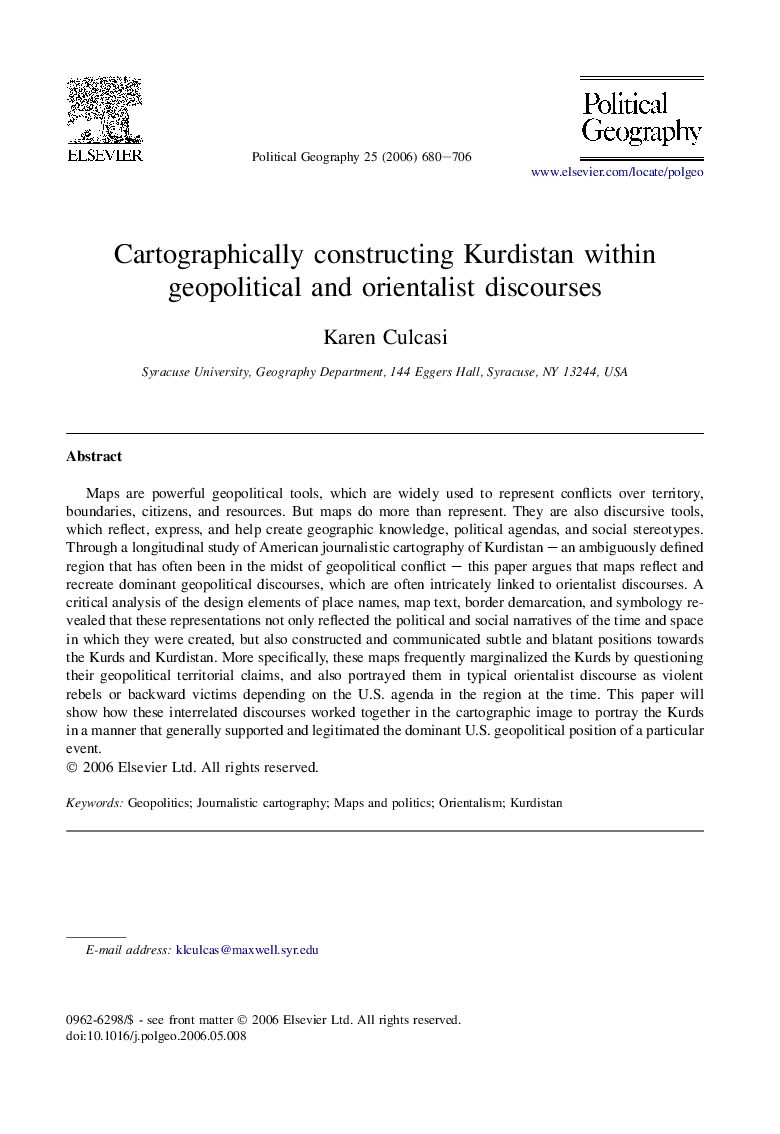| کد مقاله | کد نشریه | سال انتشار | مقاله انگلیسی | نسخه تمام متن |
|---|---|---|---|---|
| 1062583 | 947985 | 2006 | 27 صفحه PDF | دانلود رایگان |

Maps are powerful geopolitical tools, which are widely used to represent conflicts over territory, boundaries, citizens, and resources. But maps do more than represent. They are also discursive tools, which reflect, express, and help create geographic knowledge, political agendas, and social stereotypes. Through a longitudinal study of American journalistic cartography of Kurdistan – an ambiguously defined region that has often been in the midst of geopolitical conflict – this paper argues that maps reflect and recreate dominant geopolitical discourses, which are often intricately linked to orientalist discourses. A critical analysis of the design elements of place names, map text, border demarcation, and symbology revealed that these representations not only reflected the political and social narratives of the time and space in which they were created, but also constructed and communicated subtle and blatant positions towards the Kurds and Kurdistan. More specifically, these maps frequently marginalized the Kurds by questioning their geopolitical territorial claims, and also portrayed them in typical orientalist discourse as violent rebels or backward victims depending on the U.S. agenda in the region at the time. This paper will show how these interrelated discourses worked together in the cartographic image to portray the Kurds in a manner that generally supported and legitimated the dominant U.S. geopolitical position of a particular event.
Journal: Political Geography - Volume 25, Issue 6, August 2006, Pages 680–706